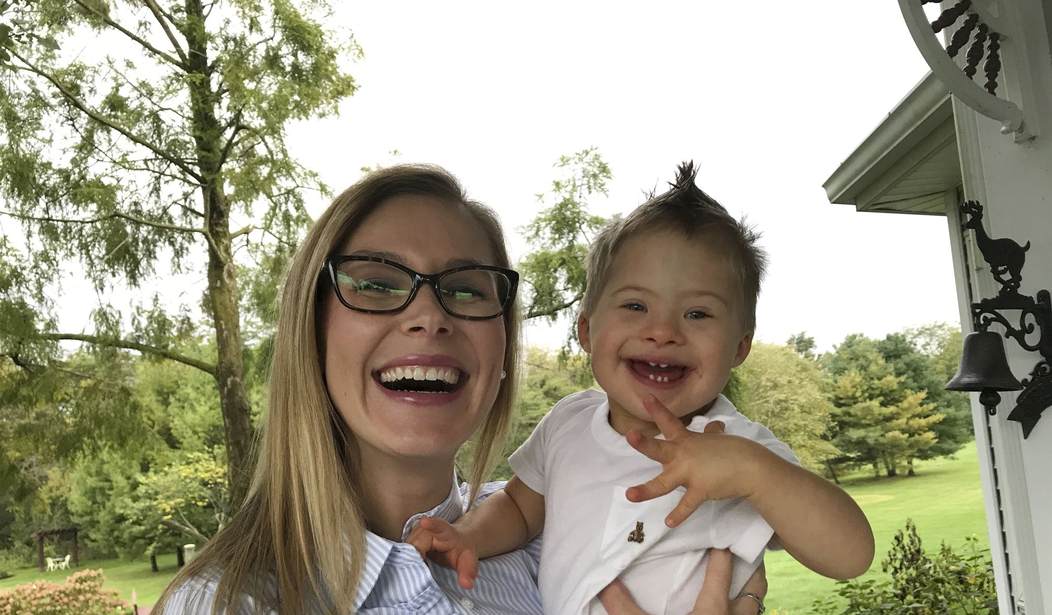Pro-lifers will be happy to know that the Sixth Circuit of Appeals has ruled in favor of the unborn and their mothers in not one but two cases this month. The most recent comes from Friday, when the court allowed Tennessee's 48-hour waiting period legislation to remain in effect while the state appeals last year's ruling from a federal judge, Adam Freidman with the Tennessean reported.
BREAKING: We welcome yet another great ruling from the 6th Circuit Court which has just reinstated a 48hr waiting period for mothers seeking an abortion in Tennessee.
— Susan B. Anthony List (@SBAList) April 23, 2021
The 2015 law, signed by then-Governor Bill Haslam, a Republican, is designed to provide women with alternatives to abortion, to ensure this is the decision she wishes to make. According to the Guttmacher Institute, as of April 1, 25 states have waiting periods, typically 24 or 48 hours from a woman's first visit to an abortion facility.
Friday's ruling comes after the April 13 decision handed down from the Sixth Circuit, which upheld Ohio's Down Syndrome Non-Discrimination Act, signed by then-Governor John Kasich, a Republican, in 2017. As the name suggests, the law is designed to prohibit abortions based on a prenatal diagnosis of Down Syndrome.
BIG WIN for the #ProLife Movement & #Downsyndrome community today
— Susan B. Anthony List (@SBAList) April 13, 2021
We applaud today's ruling upholding Ohio as a safe haven for unborn babies with Down Syndrome. This bill has the potential to pose a significant challenge to Roe.
Full statement: https://t.co/mtOQigPVJa pic.twitter.com/TrkEF6RWXR
As the Susan B. Anthony List is hints at the possibility of, and explains further in a statement, the case may find its way to the U.S. Supreme Court:
In 2018, the U.S. Court of Appeals for the Seventh Circuit ruled against a similar prohibition on discrimination abortion in Indiana. Today’s favorable ruling by the Sixth Circuit in favor of Ohio’s Down syndrome law has created a circuit split – a development that greatly increases the possibly of Supreme Court review.
Recommended
That ruling in question overturned the ban on abortions due to such a diagnosis, while the U.S. Supreme Court in 2019 in Box v. Planned Parenthood of Indiana and Kentucky Inc upheld other provisions of a 2016 signed by then-Governor Mike Pence before he went to serve as President Donald Trump's vice president.
Justice Clarence Thomas' written opinion was very much the biggest takeaway of the case, in which he condemned the eugenics behind aborting babies based on a disability, and how the Court would have to ultimately rule on the issue, as Katie reported:
"This case highlights the fact that abortion is an act rife with the potential for eugenic manipulation. From the beginning, birth control and abortion were promoted as means of effectuating eugenics. Planned Parenthood founder Margaret Sanger was particularly open about the fact that birth control could be used for eugenic purposes. These arguments about the eugenic potential for birth control apply with even greater force to abortion, which can be used to target specific children with unwanted characteristics," Thomas wrote. "Even after World War II, future Planned Parenthood President Alan Guttmacher and other abortion advocates endorsed abortion for eugenic reasons and promoted it as a means of controlling the population and improving its quality. As explained below, a growing body of evidence suggests that eugenic goals are already being realized through abortion."
"Although the Court declines to wade into these issues today, we cannot avoid them forever. Having created the constitutional right to an abortion, this Court is dutybound to address its scope," Thomas continued.
When it comes to the Sixth Circuit's ruling, the court's opinion actually referenced Justice Thomas' points on eugenics. The decision overturned a ruling from a federal judge in 2018.
The Susan B. Anthony List has a valid argument when it comes to how a circuit split "greatly increases the possibly of Supreme Court review," which happened with the 2015 Obergefell v. Hodges which legalized same-sex marriage nation wide.
However, the case being watched when it comes to review at the high court is to do with Mississippi's 15-week abortion ban, in Dobbs v. Jackson Women’s Health Organization, which has been relisted multiple times as the justices push back whether to hear the case.

























Join the conversation as a VIP Member